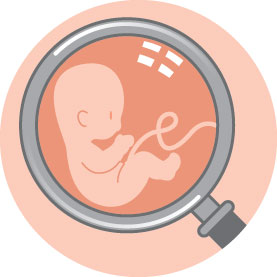Should we screen babies or young children through genetic testing?
Currently, although only the very rich can afford
sequencing of their personal genomes, DNA sequencing costs are
decreasing at an astronomical rate.
It is becoming more and more likely
that in the future, DNA sequencing will be so cheap that everyone will
be able to afford sequencing their own genomes. However, should we
really all sequence our genomes?
How will personal privacy be affected? (41) Several laws around the world deal with these privacy issues, particularly in the case of DNA collection for legal use. Currently, laws in the U.K, New Zealand, and the U.S. authorize the collection of DNA for databases prior to crime conviction or without approval of the judges. (1) In the U.S. the 5th Amendment "right of silence" and the 4th Amendment protection against search and seizure have been ruled inapplicable so DNA samples can be compulsorily collected and used as evidence in court. However, Australia and Canada limit collection to indictable offenses (also known as felonies, or crimes punishable by a prison term or death) and require a warrant before collection in some cases. (1) (7) Of all the mentioned countries impose time limits for keeping DNA except the U.S, which allows the DNA sample to be kept as long as the crime charges have not been dropped. Current laws tend to support greater flexibility for collecting DNA and rapidly expand DNA databases, although limited by the period of retention. (7) Besides controversies over creating criminal DNA databases, the dilemma of problems or benefits on increased gene testing at young children or babies is still on going. DNA sequencing leads to some possible privacy issues.
